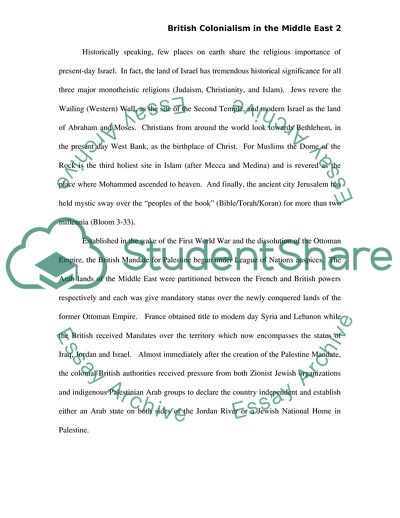Cite this document
(The Political Legacy of Colonialism in Isreal and Palestine Coursework Example | Topics and Well Written Essays - 1500 words, n.d.)
The Political Legacy of Colonialism in Isreal and Palestine Coursework Example | Topics and Well Written Essays - 1500 words. https://studentshare.org/politics/1723696-conflicts-in-the-middle-east-final-essay-options
The Political Legacy of Colonialism in Isreal and Palestine Coursework Example | Topics and Well Written Essays - 1500 words. https://studentshare.org/politics/1723696-conflicts-in-the-middle-east-final-essay-options
(The Political Legacy of Colonialism in Isreal and Palestine Coursework Example | Topics and Well Written Essays - 1500 Words)
The Political Legacy of Colonialism in Isreal and Palestine Coursework Example | Topics and Well Written Essays - 1500 Words. https://studentshare.org/politics/1723696-conflicts-in-the-middle-east-final-essay-options.
The Political Legacy of Colonialism in Isreal and Palestine Coursework Example | Topics and Well Written Essays - 1500 Words. https://studentshare.org/politics/1723696-conflicts-in-the-middle-east-final-essay-options.
“The Political Legacy of Colonialism in Isreal and Palestine Coursework Example | Topics and Well Written Essays - 1500 Words”. https://studentshare.org/politics/1723696-conflicts-in-the-middle-east-final-essay-options.


